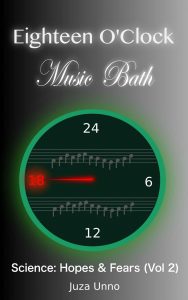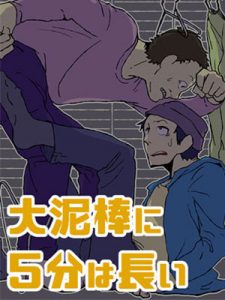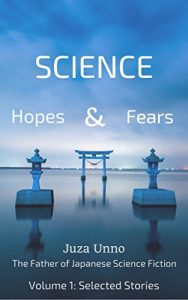 Locksleyu from Self Taught Japanese has released a new volume of Science: Hopes & Fears following a collection of short stories by Juza Unno. This second volume consists of a dystopian novella by the same author. Written in Japan in 1937, this is an early example of dystopian work that has previously never been translated into English. If you are a fan of novels such as Nineteen Eighty Four from George Orwell, then please pick up a digital copy of “Eighteen O’Clock Music Bath” and see Japan’s early contribution to the genre. I helped with translation checking and editing of this novella.
Locksleyu from Self Taught Japanese has released a new volume of Science: Hopes & Fears following a collection of short stories by Juza Unno. This second volume consists of a dystopian novella by the same author. Written in Japan in 1937, this is an early example of dystopian work that has previously never been translated into English. If you are a fan of novels such as Nineteen Eighty Four from George Orwell, then please pick up a digital copy of “Eighteen O’Clock Music Bath” and see Japan’s early contribution to the genre. I helped with translation checking and editing of this novella.
This story made me think of Mori Hiroshi’s W-series. I have only read the first three books so far:
Continue reading “New Book Highlight: Eighteen O’Clock Music Bath – Unno Juza”




